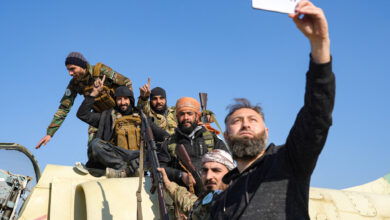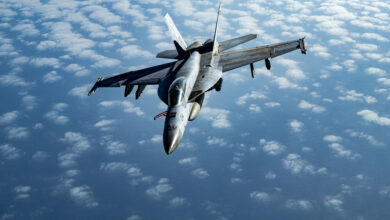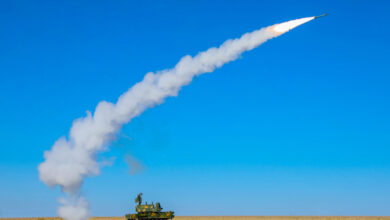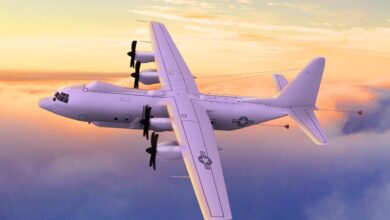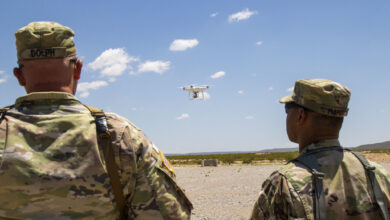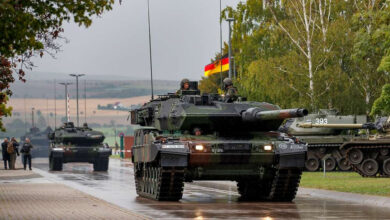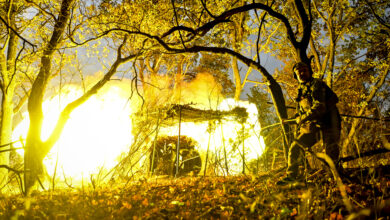World Entering New Military ‘Drone Age:’ UN Expert
The world is entering a military “second drone age” with uncontrolled proliferation and no standards governing their use, a United Nations expert told the UN Human Rights Council on Thursday.
Agnes Callamard, the UN special rapporteur on extrajudicial, summary or arbitrary executions, said the global community needed to take stock of how armed drones have evolved, and examine the challenges they posed to compliance with international law.
“There are no robust standards governing drones’ development, proliferation, export, or capability for use of force. No transparency. No effective oversight. No accountability,” she said. “Drone strikes, it seems, are favored by decision-makers and military alike for their relative efficiency, effectiveness, adaptability, acceptability, deniability, and political gain.”
The independent rights expert does not speak for the United Nations but reports her findings to it.
My latest report to the UN #HRC44 focus on targeted killings by armed drones: https://t.co/qLsqubaMpA The world has entered a “second drone age”, in which State and non-State actors are deploying ever more advanced drone technologies, a major international, security issue.
— Agnes Callamard (@AgnesCallamard) July 8, 2020
Callamard presented a report into targeted killings through armed drones, in light of the proliferation in drone use and their expanding capability over the last five years. The report made recommendations designed to regulate their use and enhance accountability.
“The world has entered a ‘second drone age’ in which a vast array of state and non-state actors are deploying ever-more advanced drone technologies,” Callamard said, adding that many countries wanted to join the “drone power club.”
She said at least 102 countries had an active military drone inventory, while around 40 possess, or were procuring, armed drones.
“Since 2015, at least 11 countries allegedly have deployed armed drones, including for the purpose of use of force, such as targeted killings,” said Callamard.
Her report identified the 11 countries as Britain, Egypt, Iran, Iraq, Israel, Nigeria, Pakistan, Saudi Arabia, Turkey, the United Arab Emirates, and the United States. She said 35 countries were thought to have the largest and deadliest class of drones.
Yearly Report Call
The expert called on countries to establish a transparent process “for the development of robust standards and accountability mechanisms for the use and export of armed drones.”
She said the UN secretary-general should set up international inquiries or fact-finding missions to investigate targeted killings by drones.
Callamard also called for the UN high commissioner for human rights to produce a yearly report tracking drone strikes and casualties for discussion by the Human Rights Council.
Callamard’s report concluded that the US drone strike outside Baghdad airport in January that killed Iran’s top general Qassem Soleimani was “unlawful” and an “arbitrary killing” that violated the UN charter.

The United States on Wednesday blasted her findings.
“It takes a special kind of intellectual dishonesty to issue a report condemning the United States for acting in self-defense while whitewashing General Soleimani’s notorious past as one of the world’s deadliest terrorists,” State Department spokeswoman Morgan Ortagus said.
Responding Thursday to Callamard’s report, Esmaeil Baghaei Hamaneh, Iran’s ambassador to the UN in Geneva, told the Human Rights Council that the killing was “viciously immoral and recklessly dangerous”, calling Soleimani “a true defender of human rights and dignity.”
“He is now an inspiring legend and will remain a living nightmare for his killers. You cannot dry up a deeply-earthed pure tree by cutting its branches,” the ambassador insisted.



